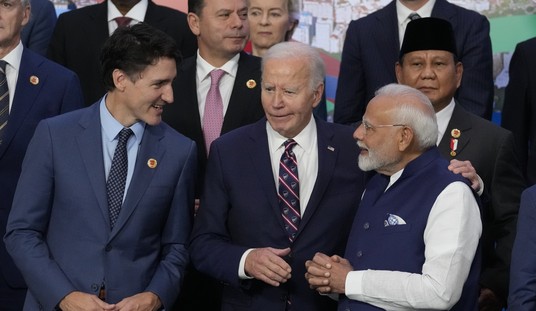So this is an interesting finding with some obvious application to our political system. A study published in Proceedings of the National Academy of Sciences (PNAS) found that unemployed people are less likely to believe others have the right to keep what they earn. Here is a description of the findings from Phys Org (h/t: Mark Hemingway)
As Luis Miller asserts, “in general, both people in employment and those in full-time education believe that people should be allowed to keep most of what they earn and that it is OK for those who work harder or who are more productive to earn more”. He went on to say, “When people become unemployed, our study indicates that they let go of this belief. They put a higher value on the redistribution of money, which, in social terms, would mean higher taxes on those earning more in order to fund increased public spending.”
This study did not simply ask people how they felt about re-distribution of wealth. Instead it created a scenario in which people did “work” during the study and were then given a chance to re-distribute payment for that work (or not).
In the first part the participants “worked” for the researchers for seven minutes. In the second part of the game each participant was given a tray divided into four sections. Each section contained a different amount of money. One of the sections belonged to the participant who had been given the tray. The other three sections belonged to the other three participants who were in their playing group. For some groups the amount of money each one received depended on how much work the people had done during the first part of the game. In others, the amount of money on the trays depended totally on luck and were not related in any way to the work each person had done. The participants could re-distribute the money among the four sections in whatever way they wanted. Each one could keep all the money, leave the tray as they had received it or re-distribute the money so that the four participants would all receive the same amount at the end of the experiment.
“We found that the employed people tended to re-distribute the money less when they knew people had earned their money in the first part,” asserted Luis Miller. “By contrast, they tended to re-distribute it almost equally when they knew that the initial distributions were just due to luck”.
Study participants were then invited back a year later to repeat the process. During that year, some of the students had left school and been unable to find work. Others had lost jobs. The result was that unemployed individuals were much more likely to distribute the money evenly regardless of whether the other “workers” had earned it.
It’s always possible to read too much into a single study, but assuming this can be verified it does seem to say something about how our political system works. The GOP has long been seen as the party of business, while the Democratic party is the party that favors big social programs and wealth re-distribution. This study suggests those viewpoints have a natural constituency in the employed and unemployed respectively.
To be more blunt, this study seem to fit with the worst stereotypes associated with each party, i.e. the GOP as the party of greedy fat cats (those unscrupulous folks who earn a lot and keep a lot) and the Democrats as the party of the needy layabouts (those who earn little and want a handout). Neither stereotype is fair but this study suggests there may be some underlying truth to the mind set that rallies to each side and thus how that mindset might come to view the opposing side. In other words, the GOP may really be the party that appeals to people who work and therefore feel people have a right to keep what they earn and can’t understand those who don’t agree. By contrast, the Democrats may be the party that appeals to those who are out of work and feel re-distribution via government is a good idea and see those who would say otherwise as selfish.
Look at this another way. One of the big complaints Democrats have aimed at the GOP for the last few years is wealth inequality. We saw this erupt with the Occupy movement (“We are the 99%!”) but there has been a real push for more equitable outcomes. Perhaps not coincidentally, all of this comes after a massive recession that put the labor participation rate at a historic low. Of course there are all sorts of Piketty-esque reasons for holding these viewpoint (the gini coefficient!) which I’m not trying to dismiss, but the study does suggest there might also be a more basic moral impetus driving these higher-order arguments (or driving them to the forefront).
Over this same time period, the GOP has been fighting for lower federal budgets, reducing the debt and lower taxes. There are, again, all sorts of rational arguments to be made for doing these things (debt-to-GDP ratio!) but it may also be the case that many in the GOP just feel that letting people keep more of what they earn (and thus giving less to government) is the right thing to do.
Perhaps the real question this study raises is whether the back-and-forth arguments have as much impact on our underlying beliefs as something much simpler: whether or not someone has a job. Second look at the Works Progress Administration?








Join the conversation as a VIP Member